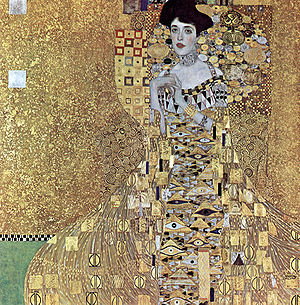Not every good quality lecture, course or documentary needs to be paid for. This one is called Radio Modern Europe. Anyone looking to study into the history of Europe will not waste their time with those podcasts.
The podcasts are actually directed at their students from Bethel university, but they have noticed a large number of downloads from other listeners not based at the faculty. The reason is because these podcasts have good quality and content.
The podcasts are actually directed at their students from Bethel university, but they have noticed a large number of downloads from other listeners not based at the faculty. The reason is because these podcasts have good quality and content.
One era I am interested in was the Fin de Siecle era; this was the period around 1900. Where there was a large array of high culture statements from within music, art and literature. Rapid changes were taking place and it seems the new century would hopefully wipe away the decadence, but might bring fear and discontent along with it. This would lead to something most horrible awaiting the Europeans as they began to examine and question their own culture after colonialism, the impact of industralization and nationalism.
I wanted to find out a bit more on the Fin de Siecle period after listening to "lecture 33.Decadence & Malaise—circa 1900" from the course called Foundations of Western Civilization II: A History of the Modern Western World by Robert Bucholz. It seems the period was taken from the French perspective of what was to come.
One thing to note about this period was The Dreyfus Affair, which was caused by anti-semitic problems that played out in France. Alfred Dreyfus was accused of selling military secrets to France's hated enemy the Germans.
One thing to note about this period was The Dreyfus Affair, which was caused by anti-semitic problems that played out in France. Alfred Dreyfus was accused of selling military secrets to France's hated enemy the Germans.
This led to Dreyfus being stripped of his military title and sent to devils island, however behind the scenes there was growing suspicion that Dreyfus was being blamed because he was a Jew and major French intellectuals began to complain and point fingers at the military and church institutions, one of the accusers was Émile Zola. After two years of backlash the real culprit was finally caught, but a lot of damage had already been down to some French institutions being the military and religous church establishments. Anti-Semitism was at such a height in France, that the case made up the mind of journalist Theodor Herzl who felt that there should be a Jewish state in order to avoid percussion from anti-Semites.
We also have some novels and books coming out in this period that looked at hysteria, decadence, fear and suspicion of society. These are works from Bram Stolker, Oscar Widle and Henry James in his novel "The turn of the Shrew", which is important for its representation of fear being induced by what is real and what is not.
The podcast mainly discusses how education, art, politics, technological changes and rights for workers and women began to spread, but it’s the style of the podcast that makes the course easily digestible. The host talks as a radio host, we also have a news desk and guests from that particular era discussion what happened and why.
 |
| Portrait of Adele Bloch-Bauer by Gustav Klimt |
I have put this picture of the painting by Gustav Klimt, because in this era the boundaries were constantly being pushed in order to break away from the traditional. However look more closely at the painting and you will see the young woman Adele, not just any women though, she is the new woman of the age. Denied access to educational establishments and rights, she now tries to find learning and knowledge elsewhere. This is the age where women take a stand and here it is immortalised in this painting.
This can be shown in literature, politics and society in general, even if it was to cause upset or resentment.
This can be shown in literature, politics and society in general, even if it was to cause upset or resentment.
The show also has a look at how classical music changed e.g Claude Debussy and how art by the impressionists made reflections of society and how the Europeans viewed themselves.
Check the podcast out when you have the chance.
No comments:
Post a Comment